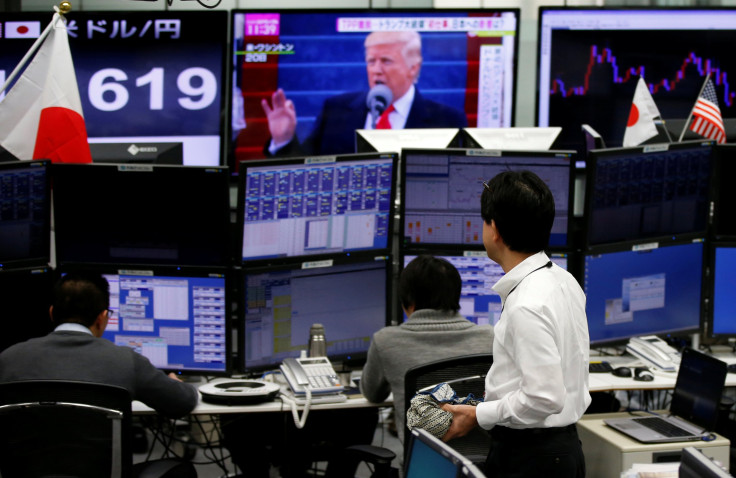US Economy 2017: Dollar Falls To Lowest Start Since Financial Crisis As Trump Policies Shake Investors

The U.S. dollar's decline Tuesday marks the worst beginning of the year performance in nearly a decade, when a global financial crisis wreaked havoc on the world's markets. The dollar's slump comes amid a series of controversial political moves by newly inaugurated President Donald Trump, who has vowed to strengthen the economy while engaging in potential trade wars.
While Trump's election victory initially saw an uptick for the U.S. currency, his recent decisions to temporarily restrict immigration from seven, Muslim-majority nations in the Middle East and widespread protests against his administration have shaken the economy. The dollar fell 0.2 percent Tuesday against the Japanese yen, a traditional safe choice for investors, especially in times of financial uncertainty. The slump follows a one-percent fall against the yen the day before.
The dollar has been on a steady decline since the middle of December and is on course for a fall of 1.9 percent on the month against a basket of currencies.
Volatility in the European markets also influenced the dollar's weak performance. French far-right politician Marine Le Pen made gains in the polls against former frontrunner Francois Fillon, who was questioned Tuesday by anti-corruption authorities.
Meanwhile, German markets posted lower inflation than anticipated and Spanish markets saw a surprise boom. Investors were also concerned over how Trump's anti-immigration rhetoric affected the Mexican peso, which fell as the U.S. and Mexican presidents squabbled over Trump's massive border wall projected aimed at stemming the flow of illegal immigration into the country.
Trump has boasted that his "America First" policies would bolster the economy, bringing back jobs that fell victim to outsourcing and encouraging commerce by slashing taxes. He enjoyed the best post-election stock market performance in modern history with a Dow Jones Industrial Average rally from about 18,400 after Election Day to a record high of over 20,125 on Jan. 26. In recent days, the Dow has slipped.
The currency began to wane before his inauguration, however, and is set for the weakest January performance since during the 2008 global recession, which was considered by many economists to be the U.S.' worst financial crisis since the Great Depression and cast doubts over the currency's future.
© Copyright IBTimes 2024. All rights reserved.





















